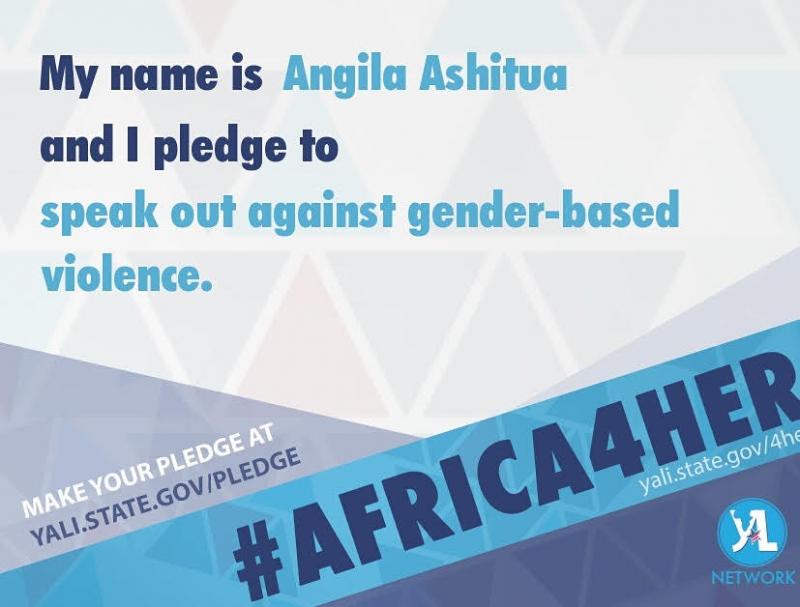It matters to have a seat at the table
The underrepresentation of women in politics is an issue all over the world.
AWID member, Angila Ashitua, a young woman from Vihiga county in Western Kenya plans to contribute to changing the dismal picture of politics by contesting in the country’s next general elections in August 2017 with the aim of representing the electorate at the county assembly level. "There is an urgent need for increased women’s participation in decision-making and political processes”.
“I seek to bring about change, I believe that change does not happen as a result of one person but all of us taking action.” – Angila Ashitua
Why politics

“It matters” Angila says, for women to sit at decision-making tables and to represent “our real communities”, push for an end to gender based violence and child abuse, and to improve “the number of women in not only political leadership and governance but in all other spheres of leadership”.
Angila seeks to inspire young women and girls to take up dreams that will lead to better futures with diverse representations of people, including women, working to solve problems especially those of social injustice. As a feminist, Angila is “passionate and devoted to defending women’s rights, setting an example, reminding women of their power and voices, causing them to get up, get out and transform the world.” Speaking to young women and girls, she tries to remind them that:
“Yes, it’s not easy, but it gotta be done. If not me, who? If not today, when?” – Angila Ashitua
Being an aspiring woman politician is not an easy task, as women in these positions “are faced with issues like attacks on their character and sexuality, electoral violence and retrogressive cultures that keep them away from politics”.
Source(s) of strength
Angila was the youngest in the family of five children. She was brought up by her older sister after their mother passed when Angila was barely two years old, which was followed by her father's tragic death when she was 11. Angila had to change schools, after her godfather, who supported her financially tragically died in an accident. Angila joined a Hairdressing and Beauty College after graduation, moved to Juba, South Sudan where she worked for two years. At the end of 2013, Angila moved back to Kenya to team up with “like-minded young women” and started Pangola, an outdoor spa. Unfortunately, the numerous terrorist attacks that Kenya faced during this period negatively affected tourism in the country after numerous countries issued travel advisories against the country to their citizens. As Angila puts it, “This affected our business, as international tourists were our target clients, which pushed us out of business”.
A change of path
In order to turn her life around Angila enrolled in online courses, which she completed successfully. She obtained a diploma in social work, leadership and human rights. Angila then volunteered and actively engaged in political parties and social reporting/blogging where she developed a passion for defending women’s and children’s rights, as well as those of other vulnerable community members. She received a volunteer assignment with Key Correspondence Network but was forced to leave.
“My life was in danger for advocating for the health rights of members of the LGBTI community, considering that Kenya is extremely homophobic.” – Angila Ashitua
Currently, Angila volunteers in the role of Operations Officer/Social worker at the Genevieve Audrey Foundation, an organisation that seeks to end all forms of child abuse. She has also participated in transformational and political leadership, as well as governance training support from the Akili Dada organization and the She Should Run incubator. Similarly, with the support of the Young African Leaders Initiative (YALI), she completed courses relating to understanding elections and civic responsibility, servant leadership, and women’s and girls’ rights.
“I am empowered, ready, committed and available to bring about the change I want to see.” – Angila Ashitua
Follow Angila on Twitter (@Angilaoluoch) and Instagram (#AngilaAshitua).
